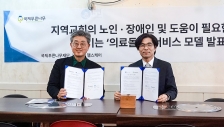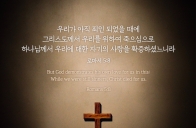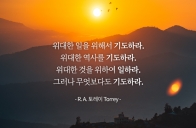국제 오픈도어선교회(이하 오픈도어)가 "24일(수) UN 제3분과위원회에서 결국 종교모독결의안이 통과됐다"고 전해왔다.
관련기사 "국제 오픈도어선교회, UN 종교모독결의안 거부 촉구"
결의안은 결국 이슬람평의회(OIC)의 주장이 그대로 인용된 것으로 나타났다. 싱기폴 대표단은 오히려 이번 결의가 좋은 결과를 가져올 것으로 기대한다고 했다.
한편 EU에서는 악용 우려 및 반대의견을 강력하게 개진했고, 미국도 반대 투표를 할 것이라고 밝혔지만 투표에서 가결되고 말았다.
다음은 제3분과위원회 결정과 본문이다.
The Committee then took action on a draft resolution entitled combating defamation of religions (document A/C.3/65/L.46).
By its terms, the General Assembly would express deep concern at the negative stereotyping of religions and manifestations of intolerance and discrimination in matters of religion or belief still evident in the world. It would strongly deplore psychological and physical violence and assaults, and incitement thereto, against persons on the basis of their religion or belief, and such acts directed against their businesses, properties, cultural centres and places of worship, as well as the targeting and desecration of holy books, holy sites and religious symbols and venerated personalities of all religions. It would express deep concern at the programmes and agendas pursued by extremist organizations and groups aimed at creating and perpetuating stereotypes about certain religions, in particular when condoned by Governments.
The Assembly would note with deep concern the intensification of the overall campaign of defamation of religions, and incitement to religious hatred in general, including the ethnic and religious profiling of Muslim minorities in the aftermath of the tragic events of 11 September 2001. It would express deep concern that Islam is frequently and wrongly associated with human rights violations and terrorism, and reaffirm the obligation of all States to enact the legislation necessary to prohibit the advocacy of national, racial or religious hatred that constitutes incitement to discrimination, hostility or violence. It would call upon all States to do their utmost to ensure that religious places, sites, shrines and symbols and venerated personalities are fully respected and protected. It would affirm that the Human Rights Council shall promote universal respect for all religious and cultural values and address instances of intolerance, discrimination and incitement of hatred against members of any community or adherents of any religion, as well as the means to consolidate international efforts in order to combat impunity for such deplorable acts.
The representative of Morocco, the main sponsor, on behalf of the Organization of the Islamic Conference (OIC), together with Venezuela and Belarus, said the resolution dealt with the disturbing increase in violence related to the defamation of religion. Those trends had found their way into political circles. Discrimination based on religion had even found its way into national policies and measures that stigmatized groups belonging to certain beliefs, thereby legitimizing discrimination against them. Those groups did not enjoy freedom of thought, and their ability to observe and manifest religions freely and without coercion, violence or retaliation was impeded. OIC reiterated its belief that all rights were universal, indivisible and interrelated, as stated by the Vienna Declaration.
The importance of freedom of opinion was acknowledged, but it was also important to have a limitation of that right, he said. Freedom of expression was one of the pillars of democratic society, but the foundation of such a society could not be completed without respect for the balance among all human rights, bearing in mind their indivisible and independent nature. Respecting rights to non-discrimination on any basis was essential to building and maintaining a healthy and dynamic society. Democracy and racism were incompatible. Articles 19 and 20 of the International Covenant on Civil and Political Rights called upon States to prevent the targeting of different religions and cultures.
Based on the growing defamation of religion, OIC found it necessary to continue promoting the draft. Many United Nations reports, as well as other stakeholders, noted the need to combat the increasing trend and stop the rise in the number of incitements to religious hatred. Those acts were obstacles to human rights. In that regard, OIC had conducted three rounds of informal consultations, besides organizing meetings with partners and groups in transparency. The co-sponsors had carefully considered all proposals, and had hoped to create a constructive dialogue aiming at cooperation regarding that trend. They had not lost hope and would continue their endeavours. The resolution stressed that vilification of any religions was a serious affront to human dignity. It called for combating such deplorable acts against all religions, without exception. The fact that Islam was at the core did not preclude that other religions could not be targeted. It was worth recalling that all States had agreed that terrorism could not be associated with any religion, civilization or ethnic group. It was a sign of compromise and consensus that they had reduced the concept of “defamation” and replaced it with the term “vilification” to avoid any pretext and encourage all to reach an objective consensus. States should show a higher degree of sensitivity in addressing the abuse of freedom of expression and insulting religions.
The Chair of the Committee stated that a recorded vote had been requested. The representative of Morocco asked who requested the vote, to which the Chair replied that Belgium, on behalf of the European Union, had.
Explaining the vote before the vote, the representative of Belgium, on behalf of the European Union, said that the European Union wished to reiterate its deepest commitment to tolerance, freedom of thought and freedom of religion and belief. The European Union was convinced that the ongoing dialogue on those issues would help to overcome existing differences. The European Union shared the concerns of the co-sponsors regarding all individuals worldwide who were victimized as a result of religion or belief. There should be enhanced efforts to eliminate religious intolerance, while ensuring that legal systems provided for adequate and effective guarantees and conscience for all without distinction.
However, the European Union did not agree with an approach that established a normative human rights concept aimed at religions in such concerns. The European Union believed that such a concept as defamation or vilification of religions was inconsistent with international human rights law. International human rights law protected individuals, and should not protect religions or belief systems. Neither should they be viewed as homogenous entities. Several Special Rapporteurs had addressed the need to address the problem within the international legal framework provided by the International Convention on Civil and Political Rights. Changes in the text, replacing defamation of religions with vilification of religions, did not dispel concerns regarding the establishment of a human rights concept seeking to protect religions instead of individuals.
Further, he said the European Union was concerned that the concept of defamation risked limiting the rights to freedom of expression, as well as religion or belief, and put into question the concept of practicing faith without fear. Limitations inconsistent with Articles 19 and 20 of the International Convention on Civil and Political Rights regarding blasphemy laws would not address his concerns. The solution rested with the right to free speech and open discussion of issues. Incitement to religious hatred was dealt with in Article 20 of the International Convention on Civil and Political Rights. The European Union recognized that there were legitimate concerns that the resolution sought to address, and publicly expressed its resolve to fight the phenomenon of intolerance of any individual on the grounds of belief, as well as invited everyone to show similar determination. Despite concerns, the European Union wished to express its sincere appreciation to Morocco and the coordinator of OIC. The European Union had taken note of the desire of the coordinator to look beyond the resolution and appreciated that. For that reasons noted, however, the European Union was calling for a vote and would vote against the draft resolution.
The representative of the United States said his delegation would be voting against. It had been participating for some time in discussions with a view to finding cross-regional solutions; finding common ground was always the goal. Changes to the resolution were appreciated, as was the openness to discussion, but it was disappointing to see that the text failed to bridge differences. The resolution still sought to curtail and penalize speech; it had negative implications for freedom of religion and freedom of expression. Human rights were held by individuals, not by government institutions or religions. Consensus had to be forged not by negotiations within one group, but between groups. The United States would continue to vote against a resolution that could be used to infringe on human rights under the guise of protecting human rights.
The representative of Switzerland said her delegation opposed the explicit definition of defamation as a modern form of discrimination. Doing so would add a religious element to racism. Human rights existed to protect individuals, not religions or other faith systems. Existing systems were sufficient, including articles 18, 19 and 20 of the International Covenant on Civil and Political Rights. Changes made by OIC to the text did not ally the principled concerns of her delegation, which would vote against.
The draft was then approved by a recorded vote of 76 in favour to 64 against, with 42 abstentions.
In an explanation of vote after the vote, the representative of Brazil acknowledged several positive aspects in the resolution, including recognition of the efforts made by the Alliance of Civilizations. However, elements at odds with international legislation remained in the draft, preventing his country from approving it. In the context of international human rights law, the concepts of defamation or vilification were not applicable. Individuals had the right to practice or not to practice a religion, or to convert. Brazil was proud of its cultural, racial and religious diversity, and while intolerance and incitement to hatred faced by Muslims in many parts of the world was regretted, those who adhered to other religions were similarly affected, including those in Islamic countries.
The representative of the United Kingdom, aligning his delegation with the statement made by Belgium on behalf of the European Union, expressed unease at the term “Judaephobia”. It marked a deviation from the term “anti-Semitism”. There had been insufficient time to consider a change in wording that could have undertones of discrimination.
The representative of Singapore said his delegation had voted in favour on the understanding that the resolution applied to all religions. Free speech could not be exercised at the expense of others, and intolerance and ignorance should be opposed.
The representative of Guatemala, referring to her country’s Constitution, condemned all acts of defamation, incitement and provocation which targeted any religion, including acts in democratic, economically advanced countries in the case of certain religious symbols. Curtailment of the freedom of expression would be a new evil, however. Her delegation chose to abstain.
In a general statement, the observer of the Holy See welcomed efforts to move away from an unclear legal definition of defamation. It was hoped that, in future, more efforts could be made to address the issues raised in the resolution in a consensual way.
The representative of Morocco welcomed the approval of the draft. The intensity of the debate was recognition of the reality of the phenomenon that the draft addressed. A fundamental difference in approaches was not minor, and those differences could not go away overnight; it was a long-term undertaking. Intolerance was the common theme, and respect for human rights, the shared parameter; that is what united people. There had been a shared conviction of all members of OIC to seek a compromise in order to reach consensus. The co-sponsors were determined to come back next year with the same spirit of willingness and determination to reach wording that could be consensual. It was hoped that next year, all minds would be disposed to do likewise.














![[이미지 묵상] 그런즉 누구든지 그리스도 안에 있으면 새로운 피조물이라 이전 것은 지나갔으니 보라 새 것이 되었도다 (고후 5:17)](https://missionews.co.kr/data/images/full/14265/5-17.jpg?w=196&h=128&l=50&t=40)
![[이미지 묵상] 한번 죽는 것은 사람에게 정해진 것이요 그 후에는 심판이 있으리니 (히 9:27)](https://missionews.co.kr/data/images/full/14264/9-27.jpg?w=196&h=128&l=50&t=40)










